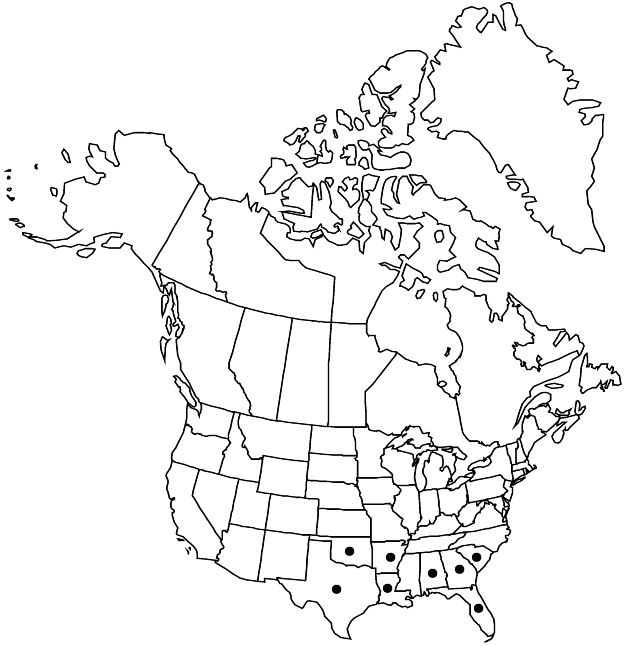Euphorbia hypericifolia
Sp. Pl. 1: 454. 1753.
Herbs, annual, with taproot. Stems erect to ascending, 15–50 cm, glabrous. Leaves opposite; stipules connate, deltate, usually entire, sometimes laciniate-fringed at tip, 1.5–2.2 mm, glabrous; petiole 1–3 mm, glabrous; blade obliquely oblong-oblanceolate, 10–35 × 7–15 mm, base asymmetric, oblique, margins serrate or serrulate, especially toward apex, apex broadly acute, surfaces glabrous; palmately veined at base, pinnate distally. Cyathia in dense, axillary and terminal, capitate glomerules with reduced, bractlike leaves subtending cyathia; peduncle 0.5–1.8 mm. Involucre obconic, 0.9–1.1 × 0.4–0.9 mm, glabrous; glands 4, yellow-green to brown, stipitate, subcircular, 0.2 × 0.2 mm, occasionally nearly rudimentary; appendages absent on smaller glands or white to pink, shape highly variable, usually round to ± elliptic, 0.3–0.4 × 0.5–0.7 mm, distal margin entire. Staminate flowers (0–)2–20. Pistillate flowers: ovary glabrous; styles 0.4 mm, 2-fid 1/2 length. Capsules depressed-globoid, 1.3–1.4 × 1.1–1.5 mm, glabrous; columella 1–1.1 mm. Seeds with very thin whitish mucilaginous coat over light brown testa below, ovoid-triangular, bluntly 4-angled in cross section, 0.9–1.1 × 0.5 mm, with shallow irregular depressions alternating with low, smooth ridges.
Phenology: Flowering and fruiting early spring–late fall.
Habitat: Open, disturbed areas, nurseries.
Elevation: 0–200 m.
Distribution

Ala., Ark., Fla., Ga., La., Okla., S.C., Tex., West Indies, Central America, South America, introduced in Asia, Pacific Islands.
Discussion
Euphorbia hypericifolia is native to the New World tropics, and it is most likely adventive in the flora area (where it is most widely distributed in Florida and Texas). Reports from Arizona, California, and Maryland likely represent waifs or misidentifications.
Selected References
None.